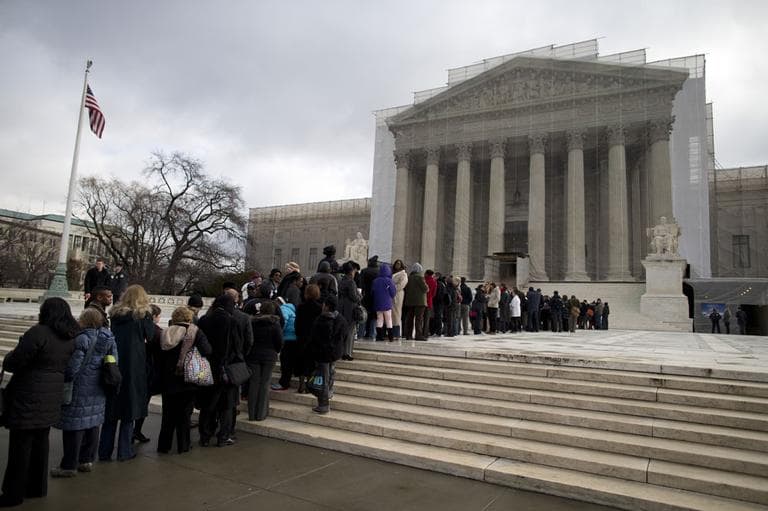Advertisement
Alabama And The Voting Rights Act
ResumeWith Jane Clayson in for Tom Ashbrook.
The Supreme Court heard a challenge to the Voting Rights Act. Is it still needed? We ask Shelby County, Alabama.

Shelby County, and its network of small towns, is a burgeoning bedroom community outside of Birmingham, Alabama. Affluent and majority white.
County leaders say the racist culture that once defined Alabama is no more. A relic from the Old South. Last week, lawyers for Shelby County challenged a key part of the Voting Rights Act before the Supreme Court.
Can a state with a strong history of racial discrimination still protect minority voters without the government’s help? Passions are strong on both sides in Alabama. We’re listening.
This hour, On Point: Voices from Shelby County.
Guests
U.W. Clemon, Alabama's first black federal judge. In 1974, he became one of the first two black Alabama state senators elected since Reconstruction. He worked alongside Martin Luther King Jr. in the Birmingham civil rights movement.
Cam Ward, Alabama state senator representing District 14, which includes Shelby County and Jefferson County.
Wayne Flynt, professor emeritus of history at Auburn University. Author of 8 books on Alabama, including "Alabama: The History of a Deep South State." Founding editor of the online Encyclopedia of Alabama.
From the Reading List
The Hill "The Supreme Court on Wednesday appeared likely to strike down a key part of the Voting Rights Act, the landmark civil rights law designed to protect minority voters from discrimination. The court’s conservative justices were at times hostile to the law’s requirement that states with a history of discrimination gain 'preclearance' from the federal government before changing their voting procedures."
The New Republic "In the wake of last week’s Supreme Court arguments over the Voting Rights Act, the geography of racism is once again a topic of debate. None other than Chief Justice John Roberts kicked things off when he asked the act’s defenders—that would be the U.S. Government—a 20-word question that brilliantly framed the entire debate: 'Is it the government’s submission that the citizens of the South are more racist than the citizens of the North?,' Roberts asked, pinning a very ragged tail on a very ugly donkey."
Bloomberg "To Frank 'Butch' Ellis, the racist culture that defined Alabama 50 years ago is gone. Integrated neighborhoods are common, and blacks are winning local elections with white support, he says. 'It’s not an issue anymore with us here,' the white lawyer said from his office across the street from the Shelby County courthouse in Columbiana. To Harry Jones, a black minister, the racism has just moved underground. 'Shelby County has modernized the ‘good ole boy’ syndrome,' he said at his church in Calera, 10 miles away."
This program aired on March 6, 2013.